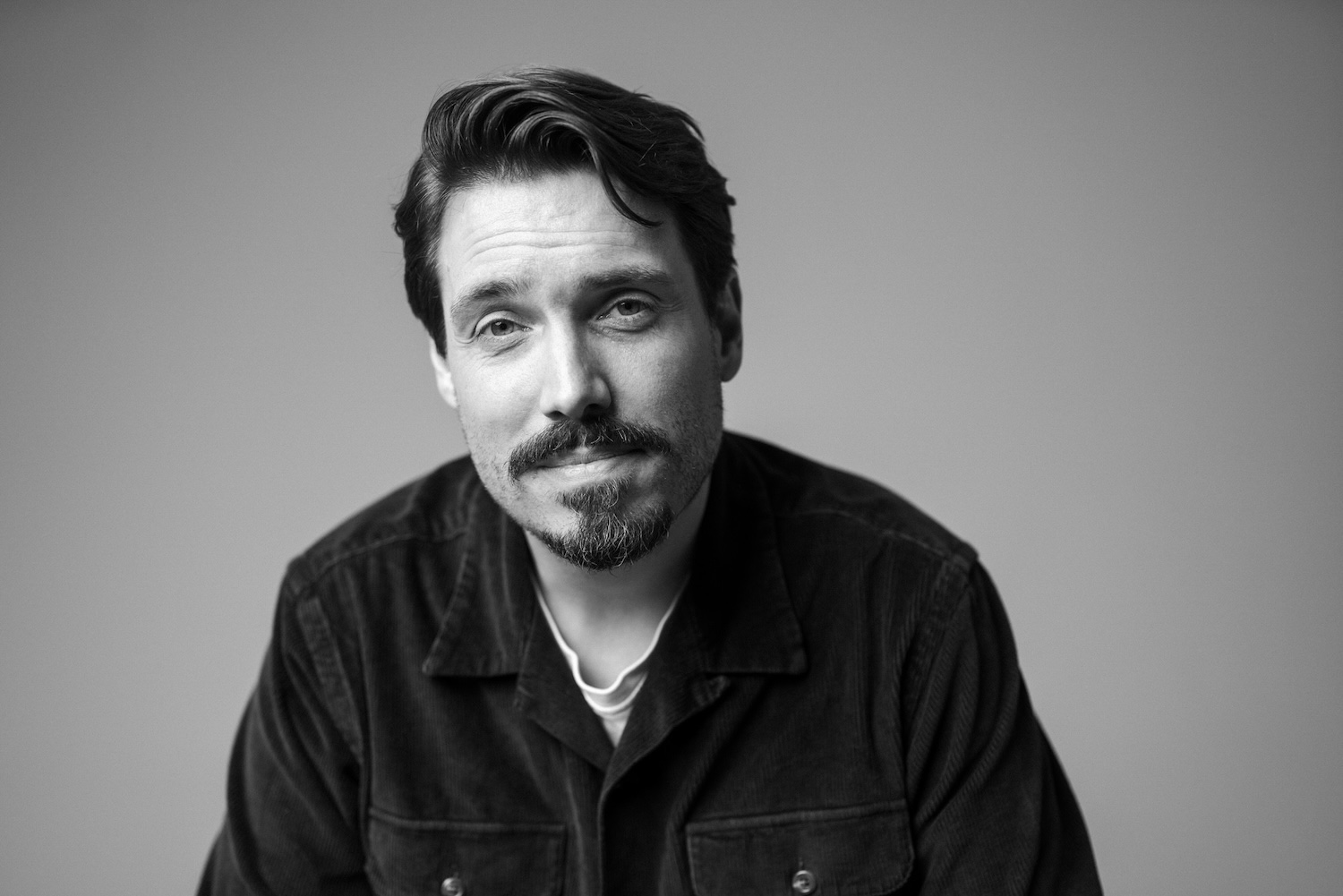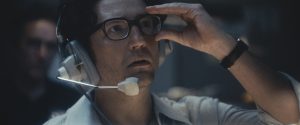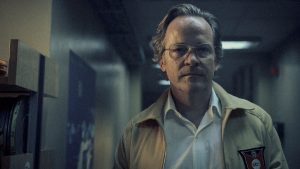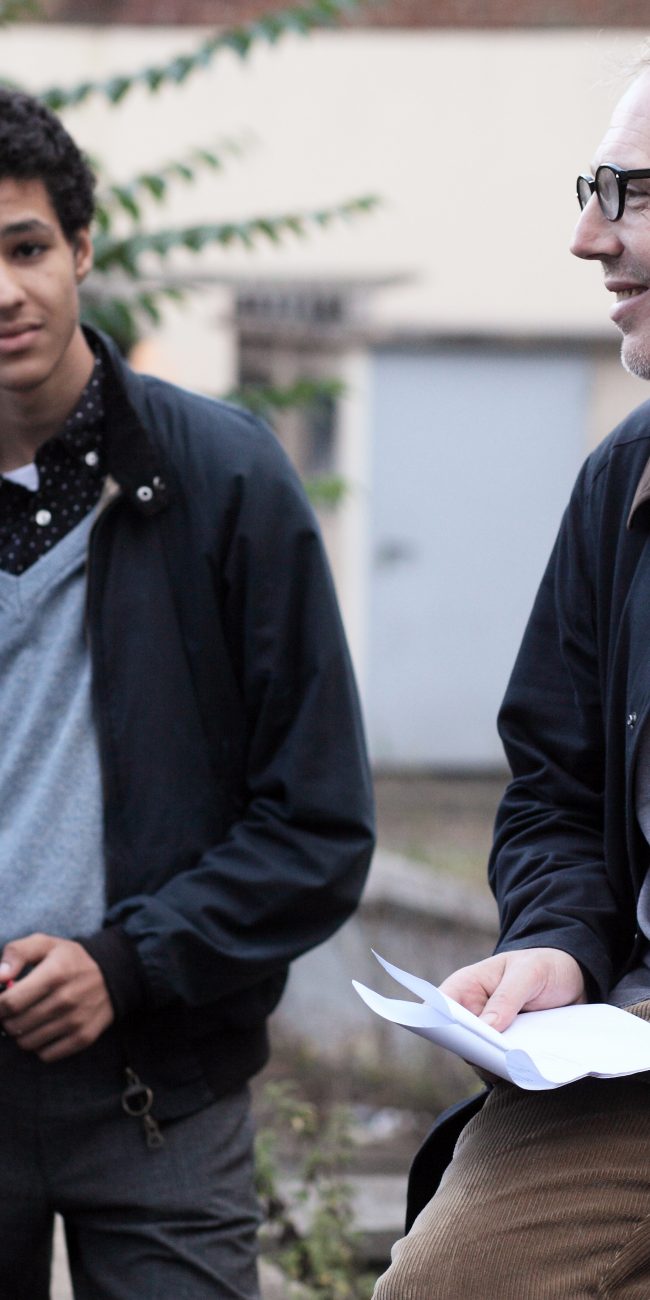A Conversation with Moritz Binder (SEPTEMBER 5)

German screenwriter Moritz Binder co-wrote the screenplay for the 2024 film September 5 together with director Tim Fehlbaum and American dialoguist Alex David. I reviewed the movie last fall and put it in my Top 10 for the year. In January, September 5 was nominated for an Oscar for Best Original Screenplay. The film tells the story of the horrific killings of Israeli athletes at the 1972 Munich Olympics from the perspective of the ABC Sports Division, holed up in the broadcast studio. Despite—or because of—this claustrophobic setting, September 5 is a taut thriller with a lot to say about the past and present. I recently spoke with Binder by Zoom, and here is that interview, edited for length and clarity. Binder’s English is more or less perfect and his words here are mostly his own, with just a little tweaking to better fit American idioms.
Hammer to Nail: Let me start off by saying that I really, really enjoyed the film. I put it on my “Best Films of the Year” list and I’m really happy to see that it garnered the screenplay nomination because it deserves that and more.
Moritz Binder: Thank you so much! That means a lot.
HtN: Absolutely! So who came up for the idea for the screenplay? I saw you co-wrote the script with the director Tim Fehlbaum and I also saw another writer credited, Alex David. Whose original idea was it?
MB: It’s a little bit tricky, because Tim Fehlbaum, the director, and Thomas Wöbke and Philipp Trauer, the producers, approached me with the idea of researching everything about that day in Munich. I come from a documentary background. Before that I was a TV journalist, so the research process was kind of my home turf. And they said they wanted to get deep into research to see if there were untold stories. So we started researching different angles; for example, all the police records of that day from the state’s archive. And we were deep into research and we thought we were going to make a movie from different angles. But then we found out more and more about the crucial role the media played that day.
And then Tim and I got more and more excited because we kind of thought this was a great angle because we are in media, too, as filmmakers, so we could relate to all the questions they had to ask and obstacles they had to overcome. So we got deeper into that research and then we found one of the runners who smuggled in the film material that day, Jimmy Schaeffler, and he told us about his day and then he said, “I think you have to talk to Geoffrey Mason because he was there in the room all day calling that show.” So we set up a Zoom meeting scheduled for 20 minutes—maybe 30 minutes—and we talked to Geoffrey and after two-and-a-half hours he said, “Well guys, if you ask me so many questions, maybe I have to charge next time.” (laughs)

John Magaro stars in Paramount Pictures’ SEPTEMBER 5
And after that, we jokingly said, “Maybe that’s our movie.” But then it became more and more real because we thought, “That’s really a good angle to tell this.” And in that way we accidentally wrote an English-language movie, so we needed somebody who could help us with the dialogue and the language. And Alex David came in because he’s from New York and he didn’t only help us with the language, he also provided his American perspective on storytelling and character arcs. We originally never wanted to give them real character arcs, with too much private stuff, but nevertheless, we wanted to give them soft arcs. So he really helped us in finding them and it was a great collaboration.
HtN: Wow. There was a lot in that answer! You answered all my questions, so thank you very much! (laughs)
MB: Sorry for that long answer.
HtN: Not at all. (laughs) No, but there was a lot I was going to ask that you just answered. What drew you to the subject of the 1972 tragedy to begin with?
MB: Well, I think I have to answer that for Tim and Thomas and Philipp. The 50th anniversary was approaching—it was two years before—and they heard that there were going to be new files released because of that. And then they thought maybe there’s something in there that was never told before. And that approach felt really right to me. They said they wanted to tell a story that can be founded in research. They didn’t want to make up some stuff. So they tried to find something in those files that was maybe new, and this is why we researched so broadly in the beginning to find something.
And I’m born and raised in Munich and my parents are born and raised in Munich, too. So I kind of knew a lot about that story from early childhood, but seeing in the files how Germany failed on so many levels that day and what kind of unprecedented situation that was, was stunning. We got really deep into the whole research of the events before we switched to the media perspective. So we already knew everything about the events and that helped a lot.
HtN: I’m sure it did. So it sounds like you and Tim Fehlbaum worked together closely and then brought in Alex David for the dialogue and the character arcs, as you said. What was your writing process like? Did you write together? Did one of you write and then bring it to the other? How did that work?
MB: Since I have a documentary background, I got really deep into the research rabbit hole and tried to find as many details as possible and all that. And that’s the thing: for every journalist involved that day, it was a life-changing day for them. Everybody wrote about it. Even the head engineer who designed the studio lot there wrote everything about that day, everything about the studio lot. So there was a lot of material and I went down that rabbit hole. And when I write scenes, I have to write them fast to not overthink them. So I wrote scene after scene with all the details I knew and they were really long.
And Tim is a master, I have to say, in finding the core of the scene and the rhythm of the movie. And after scene after scene we realized this is not drama; this is a thriller. Actually, we had to make it with this constant ticking clock, this adrenaline rush Geoffrey was talking about when we first talked to him. There was no time for the ethical questions, maybe ten-second windows. Then we realized, “Oh, this is a thriller, this is a page-turner.” We needed to feel that.
HtN: Once you landed on the media angle to approach this topic, how long was it before you decided to keep the action almost entirely grounded inside the television studio? We do leave a few times, but most of it happens inside that broadcast studio. When did you land on that device?
MB: Well, I remember that Tim said right after that first call with Geoffrey, “That sounds like a submarine.” We both love, for example, Das Boot, by Wolfgang Petersen. We said, this is actually really like a submarine movie. It’s a team of people in a condensed space, no contact with the outside world, just having the monitors as windows to the outside world and trying to process all the information that gets in and to develop a strategy from that. And then we said, “OK, then let’s make a submarine movie.”
And at first it was like, “But we will lose this and we will lose that moment.” But then we said, “But that’s a good thing because if you want to make a movie about the power of images, it’s more about what you don’t see rather than what you see.” For example, when you want to give this most-iconic picture—the man with a mask on the balcony—if you want to give this some power, it’s way more powerful if you hear about it first on the telephone and then wait for the material to get in and wait for it to get developed before you really see it.
HtN: That’s interesting. So you have the media angle and obviously ABC was covering this, as we see in film. You didn’t set out to make an English-language film, though. So what kind of German media coverage was there that you could have chosen to focus on, instead?
MB: There was a lot of German coverage that day. But it wasn’t live. Or it was live like a talking head in a studio. But what interested us so much is that this specific broadcast of ABC was the first live coverage of an event like this. And “live” means they decided to push out that camera that morning and really film that balcony and be there on location. And the other thing was radio. Everybody was glued to their radio that day. But we thought, “No, it’s interesting that those were sports journalists mainly and they were experts in covering live events.”

Peter Sarsgaard in Paramount Pictures’ SEPTEMBER 5
I mean ABC, especially Roone Arledge. was a pioneer in developing live broadcast narratives we still use today. He invented the instant replay, for example, the handheld camera on the field, and he studied English literature. So he was always after that hero’s journey and providing all the information of an athlete so that you can really relate to them. So he used all that knowledge to make an entertaining live broadcast and used it for that crisis situation. This is something we are really used to now, and that felt like the perfect perspective for us to tell.
HtN: Fascinating. Speaking of perspectives on the media environment, your film really plays up the tension between the Sports and the News Divisions. Did you enhance that tension for the sake of the movie? How much of that was actually real that you could document?
MB: Well, we found out that there was tension between Peter Jennings and Roone Arledge. When we talked to eyewitnesses, they said, “Yeah, they weren’t best friends.” And it was kind of a “who’s the boss” situation. And it’s also that New York tried to make them send over snippets to integrate into their news cycle. But Roone Arledge really said, and I think, if I remember correctly, he says it in his biography, that he really wanted to cover that because he was always very interested in news and he couldn’t understand why there wasn’t more live news. And the interesting thing is that after Munich, Roone Arledge was the first person who was not only head of the Sports Division, but also getting to be head of the News Division at the same time. So he kind of invented something there, or at least opened the door to something, that was never done before.
HtN: This takes place in the ‘70s. You talked about it being a submarine movie, but the 1970s, cinematically, was a time of taut paranoid cinematic thrillers and this movie has that aesthetic of 1970s movies. Did you watch any of those or were you inspired by any of those films from the actual time period?
MB: Yes, yes! Now I’m speaking for Tim but I know that he’s a great fan of The Conversation and there are some aesthetics in there and a feeling in there that he tried to integrate into the movie. But speaking of inspiring movies, I know that his greatest inspiration was United 93, by Paul Greengrass, which is not a ‘70s movie. But he really tried to get that feeling like Paul Greengrass is creating within the flight control room, like having a specific perspective and being as accurate as possible, which means that Tim was also casting real members of control rooms for the background like Paul Greengrass did in United 93 with the flight controllers. And he was very influenced by that and he always showed that to us to see the feelings he wanted to create.
HtN: I know this is really a question for the director, but it sounds like you two were working very closely so I’ll ask it anyway. The one primary role for a German speaker in your film is played by Leonie Benesch, whom I admired greatly in the film The Teachers’ Lounge, where she was just amazing. How did she get cast? Because she’s such a great actress and I was so happy to see her in this film.
MB: Absolutely. I think it wouldn’t be the movie without Leonie. I’m a great fan, too, and I know that she was the first one who was attached to it, and that was even before The Teachers’ Lounge came out. So we were really lucky because nobody had seen that movie. We didn’t see that movie before then. I remember seeing it for the first time during shooting, and I was every day on set. And after I watched the movie, I was almost too intimidated to congratulate her because I was so stunned by her performance. And I was like, “OK, this actress is now sitting on our set. That’s unbelievable.” And now when I watch the movie, I have to say Leonie did such a great job.
And do you remember that last scene between John Magaro and her, which is really an intense scene? I owe so much to her and to John because I overwrote it. There was way more dialogue in that scene because I tried to make a point there, a common mistake for writers to explain the movie again in the ending. And she said, “That’s great dialogue but my character went through a whole day here and she’s devastated. I don’t think she has the power to give a lecture.” So we lost line after line after line, and it was, for me, a magical moment to see. You can see it all in her face and in John’s face. And there were just a few sentences left and they had so much power then. And that was to me a masterclass in how it’s done.
HtN: Well, it’s a tribute to your own humility as an artist to be able to accept that your lines would be cut. That’s a good quality. So, congratulations to you, to the amazing script and to the film, and I wish you all good things with the Oscars.
MB: Thank you so much!
– Christopher Llewellyn Reed (@ChrisReedFilm)











